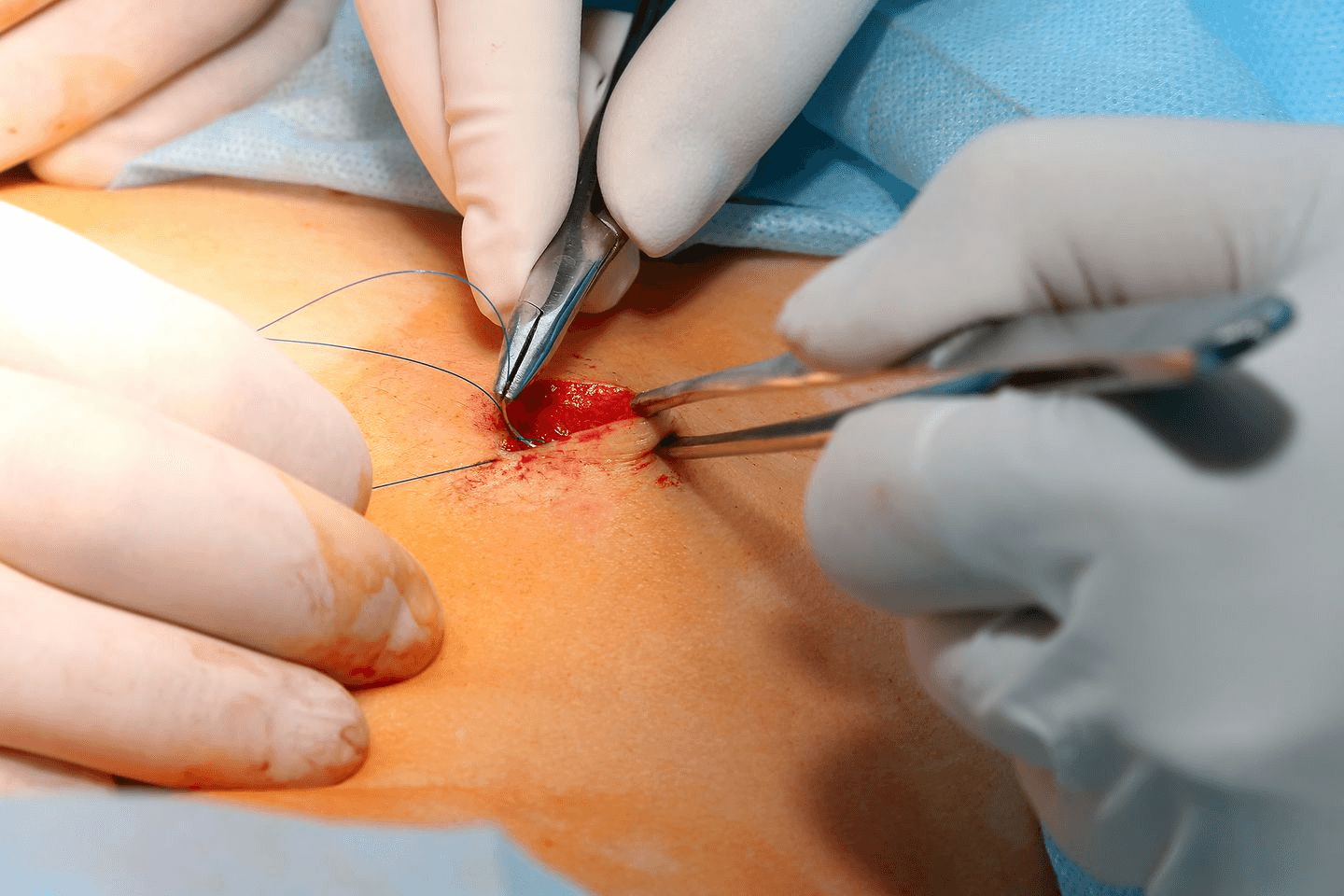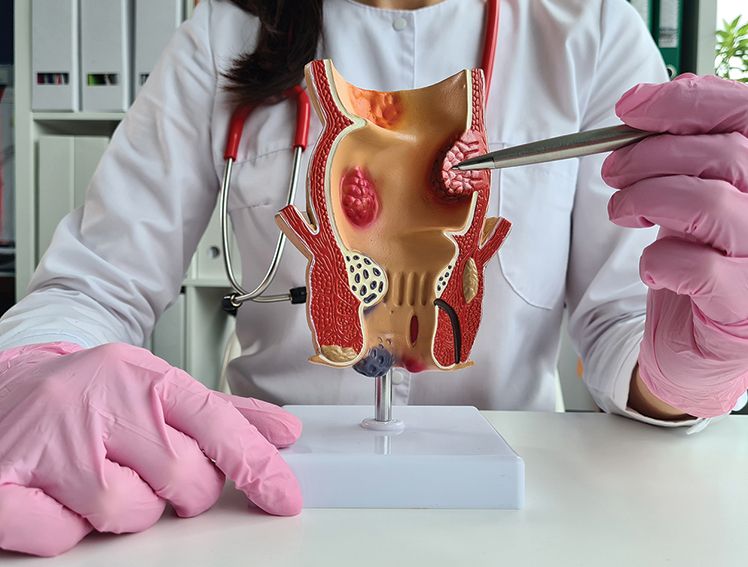
Minimally Invasive Treatments for Hemorrhoids: Why You Shouldn't Wait Until It's Severe
Introduction
Hemorrhoids, also known as piles, can be really uncomfortable. They happen when the veins around your rectum or anus swell up and get inflamed. This can lead to symptoms like itching, pain, and sometimes even bleeding. A lot of people deal with hemorrhoids at some point, but the good news is that they're often treatable with simple procedures that aren't too invasive.
In this blog, we will talk about why it is important to address hemorrhoids early on and go over some of the minimally invasive treatments that can help you feel better before things get worse.
Overview of Hemorrhoids
Hemorrhoids can happen in two places: inside the rectum (internal) and outside around the anus (external). Internal hemorrhoids might not cause much pain at first, but as they get bigger, they can protrude outside the anus (this is called prolapse), leading to discomfort. External hemorrhoids, however, tend to cause more immediate pain, swelling, and itching.
These often develop due to things like straining during bowel movements, sitting too long, pregnancy, or being overweight. They can usually be managed with some lifestyle changes and medical treatments. [1]
The Importance of Early Intervention
Early intervention is crucial when dealing with hemorrhoids. Many people tend to ignore the early signs, hoping the discomfort will go away on its own. However, waiting too long can lead to more severe symptoms that are harder to treat.
By seeking help early, you can stop hemorrhoids from getting worse and take advantage of minimally invasive treatments. These options are generally less painful and have shorter recovery times compared to more invasive surgical procedures. Addressing the issue sooner rather than later can make a big difference in your comfort and recovery![2]
Why You Shouldn't Wait Until It's Severe
Progression of Symptoms [3]
Hemorrhoids often start with mild discomfort or itching, but if you leave them untreated, those symptoms can get worse quickly. What begins as a little irritation can escalate to intense pain, bleeding, and even prolapse, where internal hemorrhoids push outside the anus. Once this happens, treating them can become more complicated and might require more invasive procedures.
Getting treatment early on can help prevent symptoms from progressing, making it easier to manage hemorrhoids and reducing the chances of long-term complications.
Risk of Complications [4]
Waiting until hemorrhoids become severe also raises the risk of complications. If left untreated, hemorrhoids can lead to chronic blood loss, which may cause anemia. There is also the possibility of a strangulated hemorrhoid, where the blood supply gets cut off, resulting in intense pain and possibly requiring emergency treatment. In some cases, severe hemorrhoids can even get infected.
By seeking treatment early, you can reduce the risk of these complications and find relief much more quickly.
When Should You Seek Medical Help?
It's important to seek medical help as soon as you notice any symptoms of hemorrhoids, especially if they last for more than a few days. Here are some signs that it's time to consult a healthcare professional:
Persistent pain or discomfort in the rectal area
Bleeding during bowel movements
Swelling or lumps near the anus
Protruding hemorrhoids that don't go back inside the rectum
Difficulty with bowel movements
Getting medical advice early can help you avoid more serious complications and explore minimally invasive treatment options.
Minimally Invasive Treatments for Hemorrhoids
If you're looking for relief from hemorrhoids without major surgery, there are several minimally invasive treatment options available that offer minimal pain and downtime. Here are some common options:[5]
- Rubber Band Ligation
This is a simple and effective procedure where a small band is placed around the base of the hemorrhoid. This cuts off the blood supply, causing the hemorrhoid to shrink and eventually fall off. The procedure is quick, and most people can get back to their regular activities soon after.
- Sclerotherapy
In this procedure, a solution is injected directly into the hemorrhoid, causing it to shrink. It's typically used for smaller internal hemorrhoids and is a quick, outpatient procedure that involves minimal discomfort.
- Infrared Coagulation
This treatment uses heat to shrink the hemorrhoid tissue. It's usually done in a doctor's office and is effective for smaller hemorrhoids, offering a quick recovery time.
- Hemorrhoid Banding
Similar to rubber band ligation, this procedure involves placing a band around the hemorrhoid to cut off its blood flow. Over time, the hemorrhoid shrinks and falls off, providing relief without the need for surgery.
Benefits of Early Minimally Invasive Treatment
One of the key advantages of seeking early treatment for hemorrhoids is the availability of minimally invasive options. Here are some reasons why these treatments are beneficial:[6]
They are generally less painful compared to traditional surgery.
You can return to your daily activities quickly due to shorter recovery time, often within a day or two.
Most of these treatments can be done on an outpatient basis, meaning you won't need an overnight hospital stay.
They work well for treating hemorrhoids in the early stages.
Lifestyle Changes to Prevent Recurrence
In addition to seeking treatment, making lifestyle changes can help prevent haemorrhoids from recurring. Here are some key strategies:[6]
Eating a high-fiber diet to promote regular bowel movements
Drinking plenty of water to stay hydrated and soften stools
Avoiding prolonged sitting, especially on the toilet
Exercising regularly to prevent constipation
Using the bathroom as soon as you feel the urge to avoid straining
These changes can help reduce the pressure on your rectal veins and minimize the chances of developing hemorrhoids again.
Addressing the Stigma Around Hemorrhoids
Many people feel embarrassed or uncomfortable discussing hemorrhoids, but it's important to remember that they are a common issue that affects many individuals. There's no need to feel ashamed about seeking treatment. Addressing the condition early can help prevent more serious complications and improve your quality of life.
By raising awareness and openly discussing hemorrhoids, we can help reduce the stigma around the condition and encourage more people to seek the treatment they need.
MIRUS procedure for prolapse hemorrhoids by Meril
Mirus Procedure for Prolapsed Hemorrhoids
The MIRUS procedure for prolapse hemorrhoids by Meril is used in open surgeries to join tissues or close wounds accurately. It helps make the surgery process smoother and more reliable. It is especially useful for procedures involving the digestive system, where being precise is important for better results and faster recovery for patients. With its easy-to-use design, it helps surgeons work more effectively.
Conclusion
Hemorrhoids are a common and manageable issue, but they can worsen if not treated. Getting early intervention with minimally invasive treatments can help provide relief and prevent symptoms from getting worse. If you're feeling discomfort, don't wait for it to escalate—reach out for medical advice as soon as possible to discuss your treatment options.



